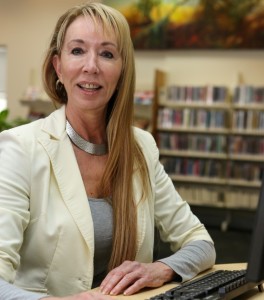When puberty hits, it’s common to see a formerly sweet girl transform from a little princess, to “Princess Attitude”.
Parents are often shocked and overwhelmed by the emotional roller coaster of adolescence. All of a sudden their little darling is transformed into a rebellious stranger, vacillating from being responsible and adorable one day, to a spoiled and obnoxious child the next.
Adolescent boys have their share of growing pains as we all know, and have grabbed the limelight of late, but we need to be really clear here. Our teenage girls reach higher levels of complication during adolescence and life for them is tougher than ever before. All too many battle-weary parents are struggling to parent our teenage girls.
Raising Adolescent Girls
Our present generation of girls is enmeshed in a culture of getting and spending. All too often they get what they want. Teenage girls are experts at manipulating a parent into giving in (crying, yelling, sulking, nagging, threatening, and generally, pressing every button they know).
This is worsened in separated families, where mums and dads are often pressured to competitively outdo the other, and, consequently, if one parent doesn’t provide, the other will. Winning the affections of the child through material things, however, is simply not conducive to her wellbeing, and simply serves to feed the egos of the parents.
Inside Girl Brains
During adolescence, the human body and brain is extremely busy growing and changing from that of a child, to finally that of a young responsible adult during the early twenties.
Girls’ brains, however, have their areas of difference from boys. For example, both the female hemispheres are more integrated allowing both to work together. Additionally, thoughts and emotions are more intertwined in the female brain due to additional growth in the parts of the brain focused on emotions.
As a way of compensating for a brain that is not fully developed until their early twenties, adolescents rely on a part of the brain that creates a tendency to react automatically. Thus, teenagers are likely to act more impulsively, with less control over their emotions and decision-making. Impulsiveness is also worsened by teen hormones that all too often thrusts our young people into risky and thrill-seeking behaviours, as they strive for independence and the creation of a self-identity separate from their parents.
Peer Pressure & Teenage Girls
Of course, there are other outside pressures that drive and influence our adolescents. As we all know, peer pressure is intense, especially now with easy internet and mobile access and girls spending way too much time talking to friends about issues their parents know little about.
In addition, from a very early age our girls’ behaviours are influenced (especially sexually) by all forms of the media, such as music video clips, television and magazines in ways they should look, dress and behave. Watch our pop princesses, from Beyonce to Britney, to see the provocative and sexual moves now being exhibited by girls from increasingly younger ages. Parents need to know that while their girls’ bodies may look mature and sexy as they dress in their high heels and short skirts, their social, emotional and psychological development is way off being mature.
It’s no wonder so many parents are left feeling helpless and exhausted as to what to do to help their kids. Certainly, nagging, yelling, ordering, demanding, buying, or simply giving up and letting “Princess Attitude” run the roost only makes her more angry, achieving nothing but family strife and pain. One way or another, she is driven to find independence and her own sense of identity.
Thus parents really need to be armed with twenty-first century strategies and techniques that actually work and help this challenging period pass more smoothly, without the cyclonic behaviours and intense emotional heat experienced so often during adolescence.
Parents, if you have a “tween” or teenager of any age, please make an appointment to see me to help make the journey as smooth and harmonious as possible for both of you! I have worked successfully with young people for many years, and am more than happy to help you and your daughter navigate the stormy waters of adolescence.
 Author: Dr Jan Philamon, PhD, BA (Hons) Psychology, C Teach, JP (Qual) Qld, MAPS.
Author: Dr Jan Philamon, PhD, BA (Hons) Psychology, C Teach, JP (Qual) Qld, MAPS.
As a registered teacher and psychologist, Dr Jan Philamon has a wealth of experience with children, however she enjoys helping individuals and couples at any stage of life. Jan aims to help people to be the best they can be and find success: improved wellbeing, gaining a sense of empowerment that allows them to actively problem solve and manage obstacles constructively, as well as positively plan and achieve their personal and career goals.
To make an appointment try Online Booking. Alternatively, you can call M1 Psychology Brisbane on (07) 3067 9129